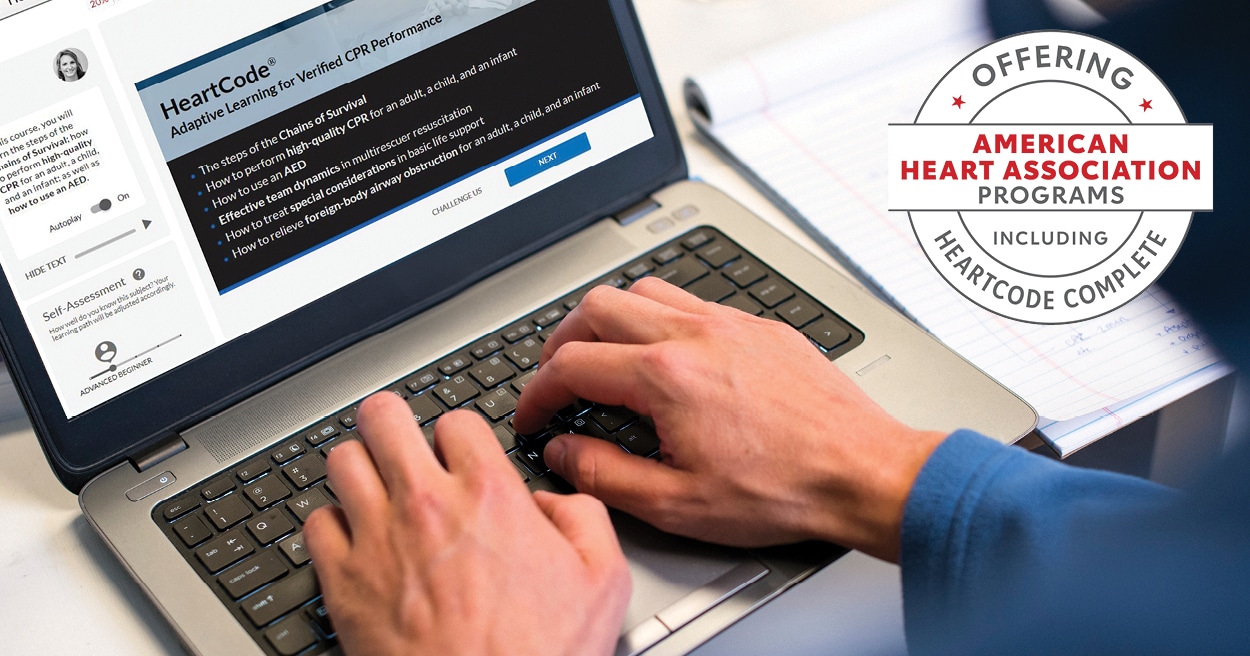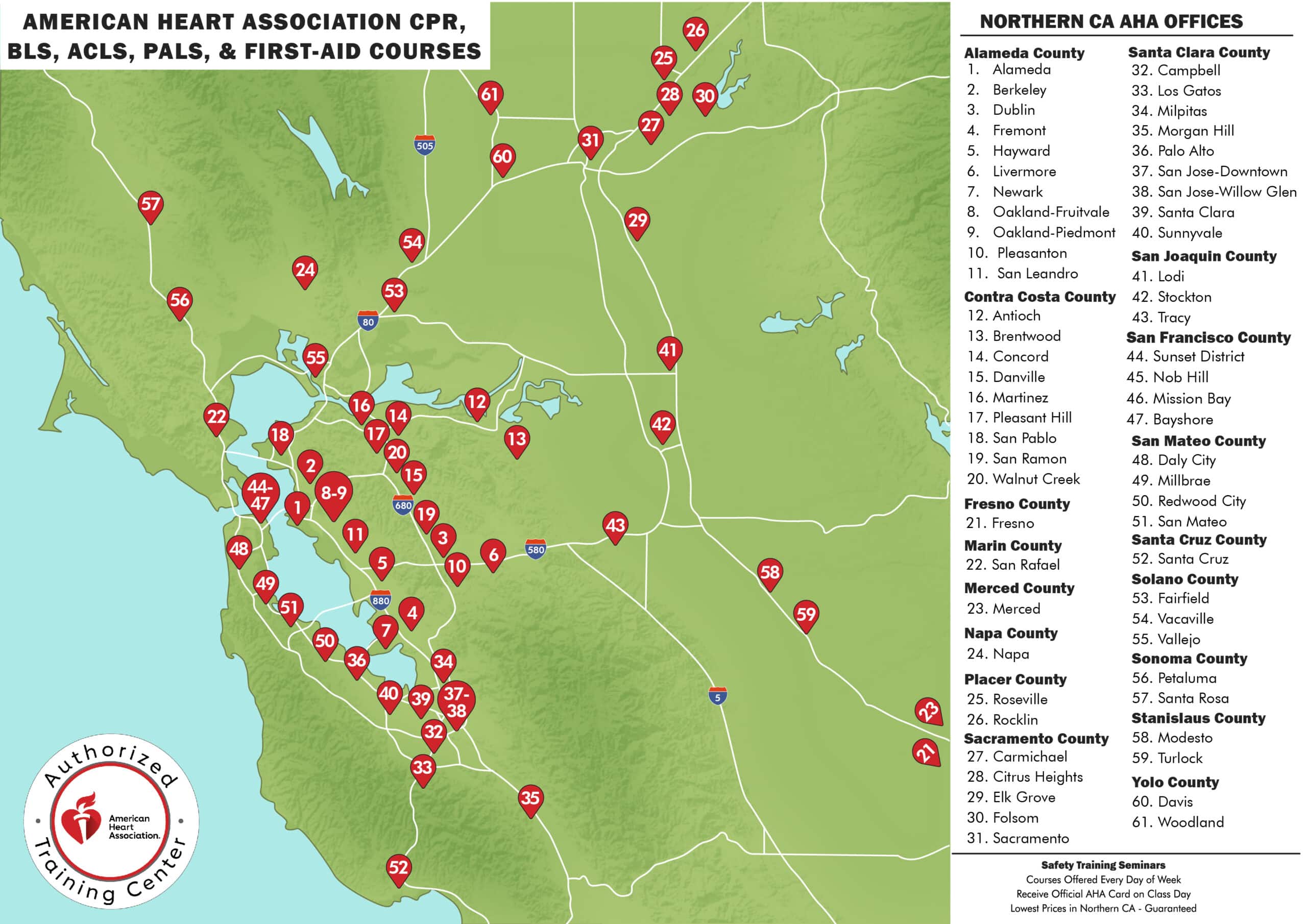
📌 Course Overview
🎓 Certification: Official American Heart Association PALS certification card
📅 Class Availability: Monday – Sunday | 7 AM – 6 PM
📜 Same-Day Certification: Receive your PALS card on the day of class
✨ Add-Ons Available: ACLS, BLS, First Aid, Opioid Training, Bloodborne Pathogens
🏆 Low Price Guarantee: Lowest prices in Northern California—we match any lower price!

Carmichael, California, stands committed to ensuring the well-being of its youngest residents, and one critical aspect of this commitment is the provision of pediatric emergency care. American Heart Association (AHA) Pediatric Advanced Life Support (PALS) classes play a pivotal role in equipping healthcare providers with the specialized skills and knowledge needed to respond effectively to pediatric medical emergencies. In this article, we delve into the significance of PALS classes in Carmichael, their accessibility, comprehensive training, and profound impact on pediatric emergency care within the community.
PALS certification is essential for healthcare providers involved in the care of pediatric patients in emergency and critical care settings. PALS classes provide participants with specialized training in the recognition and management of pediatric cardiovascular emergencies, including pediatric cardiac arrest, respiratory distress, and shock. By completing PALS certification, healthcare providers gain the expertise needed to deliver high-quality pediatric emergency care and improve patient outcomes.
PALS classes in Carmichael are designed to accommodate the diverse needs and schedules of healthcare professionals working in pediatric settings. These classes are offered at various times and locations throughout the city, ensuring accessibility for participants from hospitals, pediatric clinics, emergency medical services (EMS), and other healthcare facilities.
In addition to traditional classroom-based PALS courses, online PALS certification options provide flexibility for healthcare providers to complete the didactic portion of the training at their own pace. This blended learning approach combines online modules with hands-on skills practice and simulation-based scenarios, allowing participants to enhance their knowledge and skills in pediatric emergency care effectively.
PALS classes in Carmichael adhere to a comprehensive curriculum developed by the American Heart Association, incorporating the latest evidence-based guidelines and best practices in pediatric emergency medicine. Participants learn pediatric advanced life support algorithms, including the Pediatric Assessment Triangle (PAT), pediatric basic life support (BLS), pediatric advanced airway management, and pediatric pharmacology.
Instructors, often experienced pediatric healthcare providers with specialized training in PALS, facilitate engaging and interactive training sessions. Participants have the opportunity to practice PALS skills in simulated clinical scenarios, including pediatric cardiac arrest simulations, pediatric respiratory distress scenarios, and pediatric trauma simulations. This hands-on approach ensures that participants develop the confidence and competence to respond effectively to pediatric emergencies in real-life situations.
One of the key components of PALS training is the Pediatric Assessment Triangle (PAT), a systematic approach to the initial assessment of pediatric patients. Participants learn how to quickly assess the appearance, work of breathing, and circulation of pediatric patients to identify and prioritize life-threatening conditions effectively.
PALS classes cover essential pediatric basic life support (BLS) skills, including pediatric CPR, pediatric defibrillation, and pediatric choking relief. Participants learn age-specific techniques and algorithms for providing high-quality CPR and managing pediatric airway and breathing emergencies.
Advanced airway management is a critical component of pediatric emergency care, particularly in the management of pediatric respiratory failure and cardiac arrest. PALS classes teach participants how to perform advanced airway interventions, including endotracheal intubation, supraglottic airway placement, and ventilation strategies for pediatric patients.
PALS classes cover essential pharmacological interventions used in the management of pediatric emergencies, including medications for pediatric cardiac arrest, respiratory distress, and shock. Participants learn the indications, dosages, administration routes, and potential adverse effects of pediatric emergency medications, ensuring safe and effective medication administration in pediatric patients.
Effective teamwork and communication are essential for successful resuscitation efforts in pediatric emergencies. PALS classes emphasize the importance of clear communication, leadership, and role assignment within the pediatric resuscitation team. Participants learn how to coordinate team-based resuscitation efforts, delegate tasks effectively, and adapt to changing clinical scenarios in high-stress environments.
Upon successful completion of PALS classes, participants receive PALS certification, typically valid for two years. Certification demonstrates that healthcare providers have completed the required training and are competent to provide pediatric advanced life support in emergency situations.
To maintain PALS certification, healthcare providers are required to undergo periodic recertification, typically every two years. PALS recertification courses provide an opportunity for participants to review and refresh their PALS knowledge and skills, learn about any updates or changes in guidelines, and demonstrate proficiency in pediatric emergency care.
In Carmichael, American Heart Association PALS classes play a vital role in enhancing pediatric emergency response and improving patient outcomes in pediatric emergencies. By equipping healthcare providers with specialized pediatric advanced life support skills, PALS classes empower individuals to deliver timely and effective care to pediatric patients experiencing life-threatening emergencies.
With accessible and comprehensive PALS training options available in Carmichael, healthcare providers have the opportunity to enhance their knowledge and skills in managing pediatric emergencies with precision and confidence. By investing in PALS education and certification, the healthcare community in Carmichael demonstrates its commitment to providing high-quality pediatric emergency care and ensuring the health and well-being of pediatric patients in the community.
Who should attend PALS certification classes in Carmichael?
PALS certification classes are primarily designed for healthcare professionals who are involved in the management of pediatric patients, including pediatricians, emergency physicians, nurses, paramedics, and respiratory therapists.
How long does a PALS certification course typically last?
PALS certification courses usually span over two days, with a combination of didactic instruction, skills practice, and simulated scenarios to ensure comprehensive learning and skill mastery.
Is there a renewal requirement for PALS certification?
Yes, PALS certification is typically valid for two years, after which healthcare professionals are required to undergo PALS renewal courses to maintain their certification.
Safety Training Seminars CPR
6020 Rutland Drive, Suite 23, Carmichael, CA 95608
(916) 610-1309